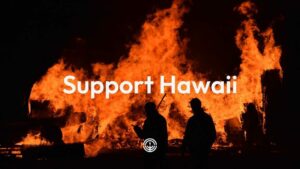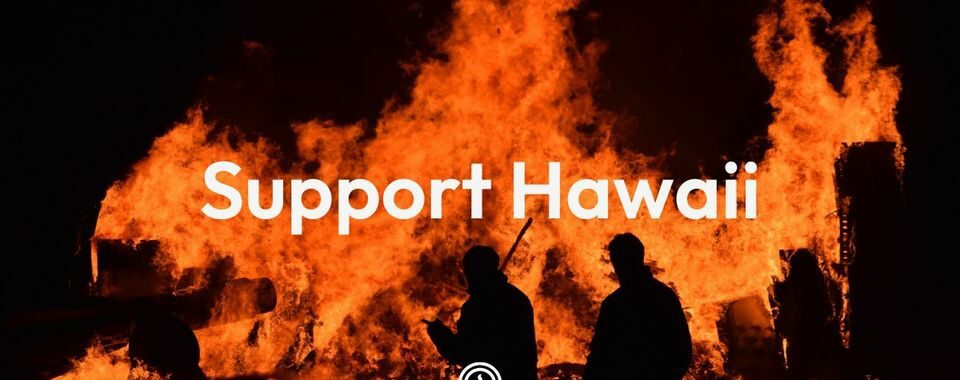By Andrew Adler
Community Editor
 Nature – capricious, arbitrary, furious and deadly – unleashed itself on the Hawaiian island of Maui earlier this month. Wildfires swept through large portions of Maui’s landscape, consuming the historic town of Lahaina and killing at least 115 people. Several residents saved themselves only by wading into the nearby Pacific. Others, trapped by the wind-whipped flames, were not as fortunate. Some of them may never be positively identified.
Nature – capricious, arbitrary, furious and deadly – unleashed itself on the Hawaiian island of Maui earlier this month. Wildfires swept through large portions of Maui’s landscape, consuming the historic town of Lahaina and killing at least 115 people. Several residents saved themselves only by wading into the nearby Pacific. Others, trapped by the wind-whipped flames, were not as fortunate. Some of them may never be positively identified.
Understanding the what is relatively straightforward. The why, on the other hand, is all but unknowable. Making sense of the senseless is, ultimately, a fruitless errand. There may be no recourse except to move, stumbling, in the general direction of “forward.”
If there is any good to emerge from this tragedy, it’s in how we off-islanders are responding. Amid local infrastructure failures – emergency sirens that never sounded, fire hydrants without water – those of us who live thousands of miles from Maui have the responsibility to help not simply in words, but in deeds
Hawaii is more or less a speck in the vast South Pacific. Trucks from neighboring states can’t simply roll in – instead, it’s a relative slog to transport aid from the continental U.S. For residents of Lahaina and elsewhere who lost homes and possessions, delays can seem interminable. For those who lost loved ones, solace may appear impossible.
Hawaii has a small but vibrant Jewish community (in the vicinity of 8,000-10,000 people, according a 2020 Jewish Community Services “Mapping Report”). The state has a Jewish governor, Josh Green; several synagogues, and a Chabad center. In the immediate wake of the Maui wildfires, Jewish Federations of North America swung into action, setting up a dedicated national mailbox for aid contributions.
Most of those impacted on Maui, of course, are not Jewish. It speaks to the universality of compassion and support that aid is for everyone, regardless of faith. The impact of this disaster, the scope of suffering, death and destruction, mandates the widest conceivable commitment.
All too often, responses to natural disasters fail to sustain their initial impetus. Calamity can breed short memories, particularly when that calamity is so distant. We may see, hear and read new reports of how nature went off the rails, but catastrophe fatigue can undermine the best of relief intentions.
Very few of us can genuinely empathize with people whose homes have burned to the ground, or whose families are now ripped apart. The emotional wounds are grievous and deep; healing them will require great skill plus great patience. And we humans tend to be an impatient sort.
There’s also the spiritual component to consider. “Sending thoughts and prayers” may be a cliché, and certainly they’re no substitute for physical assistance. Invoking “thoughts and prayers” in the face of someone who is now homeless and destitute is scant comfort.
Still…if we believe in God’s compassionate presence – less so in God’s choosing to intervene directly into humanity’s affairs – we cannot discount the resonance of prayerful energy. My own belief system has evolved amid a kind of spiritual duality: the God of my Jewish heritage alongside a “listen to the Universe speak” perspective. I don’t find these at all contradictory, but mutually supportive.
I can pray for those impacted by the Maui wildfires, which may make me feel better, and if the Universe is cooperative, somehow ease the anguish of the Maui affected – Jews and non-Jews alike. This may be another opportunity to exercise extended patience. Typically, prayer is not compatible with instant gratification.
Meanwhile, we can continue the imperative of practical aid to Lahaina and the rest of distressed Maui. Jewish Federations of North America – and here at the Jewish Federation of Louisville and the Trager Family JCC – recognize the scope of the relief challenge. To paraphrase Rabbi Tarfon’s ancient missive – no matter how long the task may take, we’re not excused from giving it our best, most authentic effort.
To donate to JFNA’s Hawaii Wildfire Fund, go online at https://tinyurl.com/2usntjha



